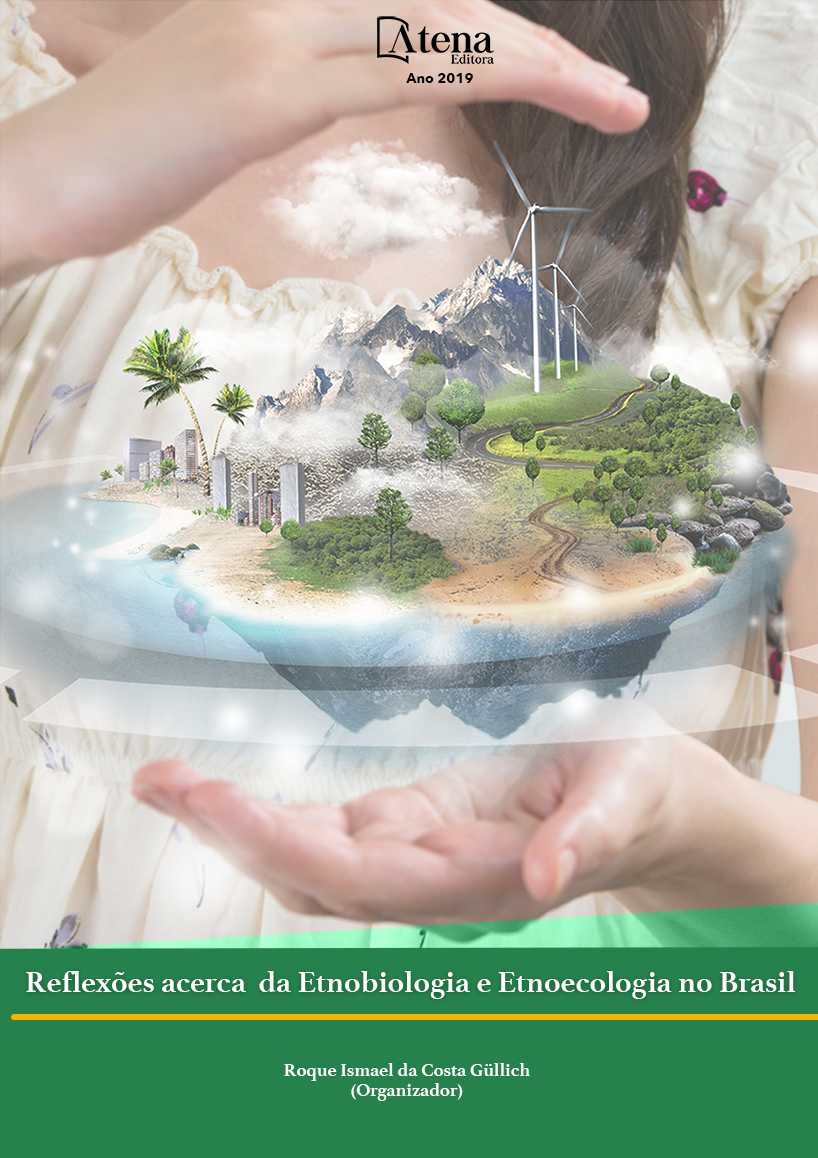
UNIDADES DE CONSERVAÇÃO E POVOS E COMUNIDADES TRADICIONAIS: NOVOS DESAFIOS PARA INVESTIGAÇÕES ETNOBIOLÓGICAS E ETNOECOLÓGICAS
A estratégia de instituição formal
de áreas protegidas vem se expandindo e se
consolidando, em escala global, como o principal
instrumento de conservação da natureza. Um
movimento que, no entanto, tem implicado em
algumas contradições nas suas interfaces com
os territórios de povos tradicionais, demandando
uma melhor compreensão dos elos que
conectam pessoas, lugares e natureza. No
Brasil, essas questões se traduzem em diversos
conflitos entre os esforços governamentais de
implementação das unidades de conservação
(UC) e as necessidades e direitos de populações
locais. Diante desse contexto, este capítulo
tem por objetivo estimular a reflexão sobre
as potenciais contribuições de investigações
etnobiológicas e etnoecológicas para a
superação dos desafios que permeiam a gestão
das UC, na busca pela integração das visões
de mundo e interesses dos povos indígenas e
outras populações tradicionais. As conclusões
reforçam que as UC representam um amplo
campo potencial de atuação para etnocientistas,
com demandas crescentes de produção de
conhecimento para embasar a elaboração
de instrumentos de manejo. Ao promover um
encontro de perspectivas e diálogo de saberes,
esse tipo de investigação pode inspirar novas
formas de entender a relação entre sociedade
e natureza e contribuir para a construção de
práticas inovadoras de inclusão social nas UC
brasileiras, desatando nós e criando laços.
UNIDADES DE CONSERVAÇÃO E POVOS E COMUNIDADES TRADICIONAIS: NOVOS DESAFIOS PARA INVESTIGAÇÕES ETNOBIOLÓGICAS E ETNOECOLÓGICAS
-
DOI: 10.22533/at.ed.0221905024
-
Palavras-chave: áreas protegidas; políticas públicas; proteção da natureza; papel dos etnobiólogos; conhecimento tradicional.
-
Keywords: protected areas; public policy; protection of nature; role of ethnobiologists; traditional knowledge
-
Abstract:
The strategy of formal
institutionalization of protected areas has been
expanding and consolidating, on a global scale,
as the main instrument of nature conservation.
A movement that, however, has implied
some contradictions in its interfaces with the
territories of traditional peoples, demanding a
better understanding of the links that connect
people, places and nature. In Brazil, these
issues translate into several conflicts between
government efforts to implement conservation
units (UC) and the needs and rights of local
populations. In this context, this chapter aims to
stimulate reflection on the potential contributions
of ethnobiological and ethnoecological research
to overcome the challenges that permeate the
management of PAs, in search for the integration
of the worldviews and interests of indigenous
peoples and other traditional populations. The
conclusions reinforce that UCs represent a broad potential field of action for ethnocientists, with increasing demands for knowledge
production to support the elaboration of management tools. By promoting a meeting of
perspectives and dialogue of knowledge, this type of research can inspire new ways
of understanding the relationship between society and nature and contribute to the
construction of innovative practices of social inclusion in the Brazilian UC, unleashing
us and creating bonds
-
Número de páginas: 15
- Erika Fernandes-Pinto


